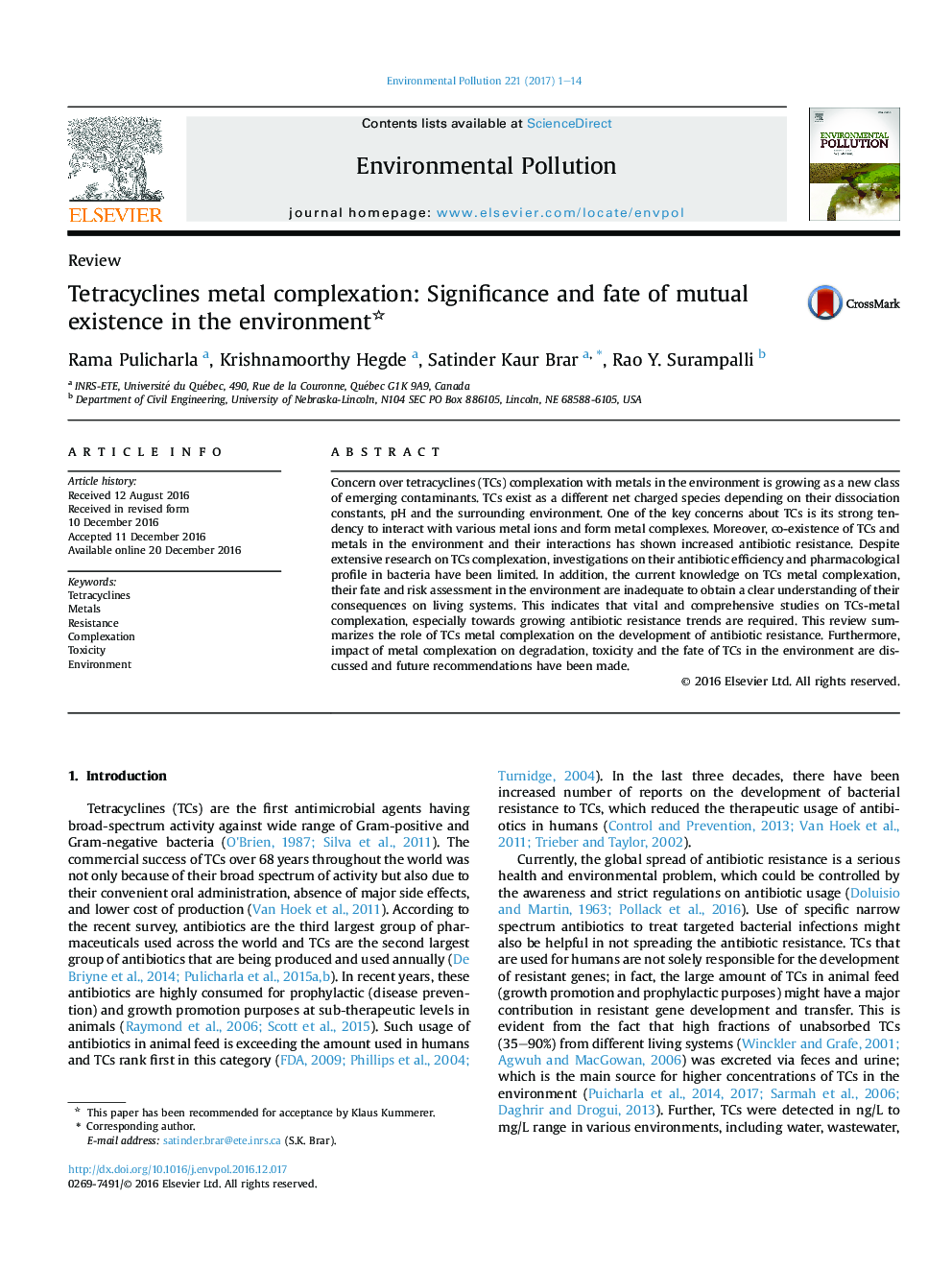| Article ID | Journal | Published Year | Pages | File Type |
|---|---|---|---|---|
| 5749446 | Environmental Pollution | 2017 | 14 Pages |
â¢TCs metal complexation increases the antibacterial efficiency and develops resistance.â¢pH and metal binding causes conformational changes in the TCs.â¢Metal interactions decrease the mobility and increase the stability of TCs.â¢TCs complexation with metals resulted in different degradation products.
Concern over tetracyclines (TCs) complexation with metals in the environment is growing as a new class of emerging contaminants. TCs exist as a different net charged species depending on their dissociation constants, pH and the surrounding environment. One of the key concerns about TCs is its strong tendency to interact with various metal ions and form metal complexes. Moreover, co-existence of TCs and metals in the environment and their interactions has shown increased antibiotic resistance. Despite extensive research on TCs complexation, investigations on their antibiotic efficiency and pharmacological profile in bacteria have been limited. In addition, the current knowledge on TCs metal complexation, their fate and risk assessment in the environment are inadequate to obtain a clear understanding of their consequences on living systems. This indicates that vital and comprehensive studies on TCs-metal complexation, especially towards growing antibiotic resistance trends are required. This review summarizes the role of TCs metal complexation on the development of antibiotic resistance. Furthermore, impact of metal complexation on degradation, toxicity and the fate of TCs in the environment are discussed and future recommendations have been made.
Graphical abstractDownload high-res image (211KB)Download full-size image
